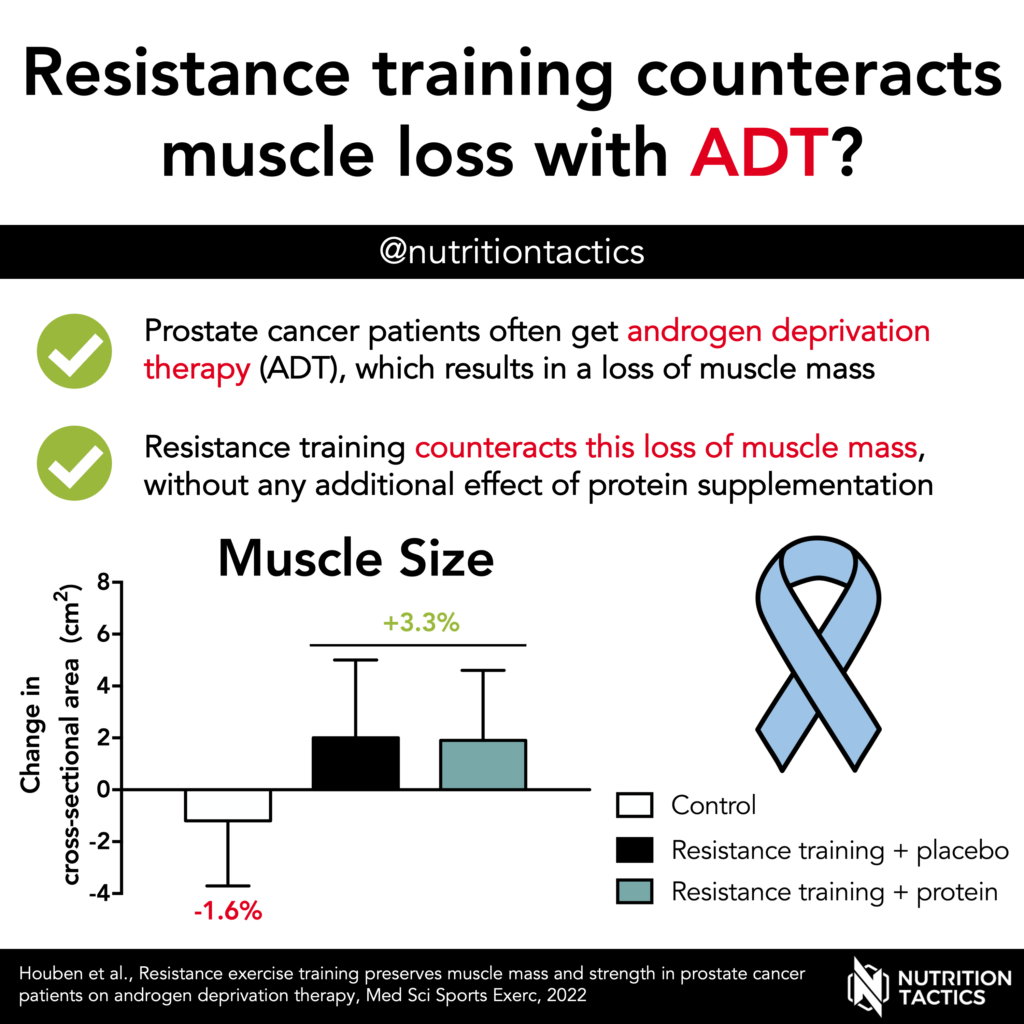Can resistance training counteract the adverse effects of androgen deprivation therapy?
Prostate cancer is one of the most common types of cancer. An effective treatment is androgen deprivation therapy (ADT), which lowers testosterone levels to castration levels. However, such low testosterone levels tend to result in a loss of muscle mass and strength.
Our study investigated the effect of resistance training with or without protein supplementation on muscle mass and strength in prostate cancer patients undergoing ADT. Subjects were divided into 3 groups:
- ADT control group
- ADT + resistance training
- ADT + resistance training + protein supplementation
Resistance training was a 20-week supervised program (2 sessions per week). Protein supplementation was 31 g whey protein provided after each training session and every night before sleep. Muscle mass was determined with CT (quadriceps cross-sectional area) and muscle strength with 1 repetition maximum tests.
As expected, muscle mass (-2%) and strength (-5%) decreased in the ADT control group. Resistance training completely counteracted the loss and even increased muscle mass (+3%) and strength (+15%), with no additional effect of protein supplementation.
These findings suggest that muscle mass and strength gains can be made even with very low testosterone levels.


why the whey protein supplement has no additional contribution to muscle gains? Aslo due to what you mentioned in next article about plant protein, e.g., measurement method, variation,little differece induced by slow muscle gains?
Most studies in general show no “significant” effect of protein supplementation.
Protein supplementation does seem to improve muscle mass gains from resistance training. But you need a meta-analysis or huge study (lots of subjects and training duration) to consistently show it. This study was much larger than average, but we still did not find it.
So it’s possible that it actually works. But of course this was a study with a special patient population. It’s possible they are less sensitive to the beneficial effect of protein.